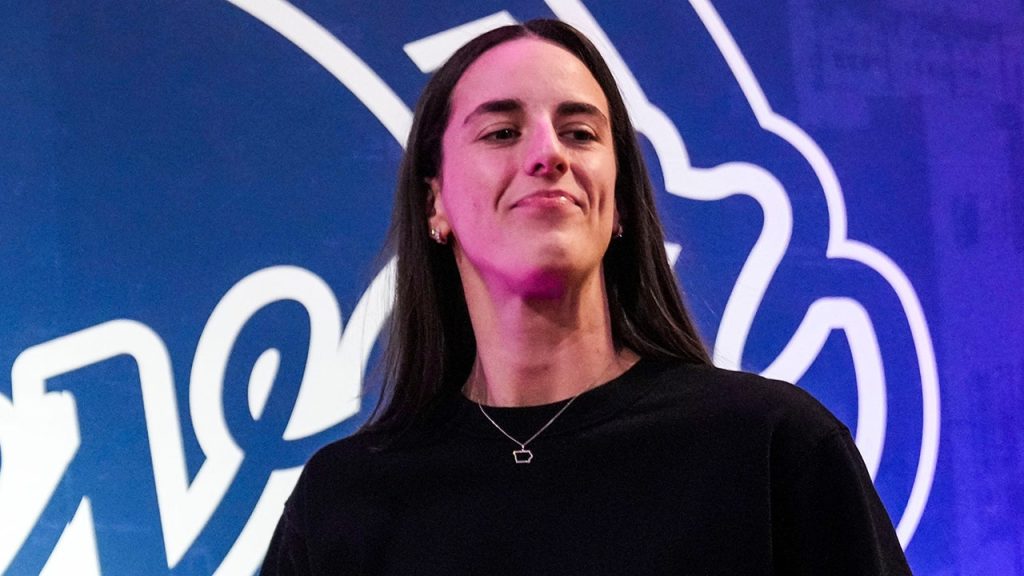WNBA icon Sue Bird and soccer legend Megan Rapinoe have voiced their support for Caitlin Clark amidst the controversy surrounding the basketball star’s comments on White privilege. Clark, in a Time magazine interview, acknowledged the WNBA’s historical foundation built by Black players and emphasized the importance of recognizing and investing in these athletes. While aiming to uplift Black women in the league, her remarks ignited a firestorm of criticism on social media, particularly from a segment of her fanbase. Bird and Rapinoe, speaking on their podcast “A Touch More,” dissected the backlash, interpreting the negative reaction as a testament to the deep-rooted racial issues prevalent in the United States. They argued that the outrage underscores the discomfort some fans feel when confronted with discussions about race and privilege, revealing a disconnect between appreciating Clark’s athletic prowess and acknowledging the broader societal context within which her success occurs.
Bird questioned whether the same level of outrage would have been directed at Clark’s on-court incidents during her rookie season had she been a Black player. She firmly believes Clark deserves the Time Athlete of the Year accolade, praising her both for her on-court achievements and her willingness to acknowledge her White privilege. Bird emphasized that recognizing privilege is not about diminishing individual accomplishments but rather acknowledging the systemic advantages that come with being White in a society grappling with racial inequality. This acknowledgment, according to Bird, reflects living in the real world and seeing the existing disparities, a perspective she feels some fans are unwilling to confront. Bird concluded that Clark’s race doesn’t contribute to her scoring ability, highlighting the irrelevance of race to athletic performance while emphasizing its significance in shaping broader societal experiences.
Rapinoe, known for her outspoken advocacy, directly addressed the conservative backlash against Clark’s comments, criticizing those who use such discussions to further divisive narratives. She argued that Clark’s explicit acknowledgment of her White privilege left no room for misinterpretation and commended her for owning the narrative. Rapinoe highlighted the tendency for positive stories in women’s sports to be quickly overshadowed by divisive narratives, urging athletes to be mindful of how their words and actions can be manipulated within this broader context. She emphasized the importance of recognizing and resisting these divisive tactics, particularly within the ecosystem of women’s sports, where positive narratives are often undermined.
The controversy surrounding Clark’s comments highlights the complex intersection of sports, race, and privilege. While Clark’s intention was to amplify the contributions of Black women in the WNBA and advocate for greater equity, her words sparked a debate about the role of White athletes in discussions of race and privilege. The backlash she faced underscores the discomfort that still exists around these conversations, particularly within the sports world, often viewed as a meritocratic escape from societal issues. However, as Bird and Rapinoe argue, ignoring these issues is not only a disservice to the athletes who have historically been marginalized but also a denial of the reality of the world we live in.
The support from Bird and Rapinoe underscores the importance of allyship and the need for prominent figures to use their platforms to address difficult conversations. Their willingness to speak out, not only in defense of Clark but also in support of broader racial justice initiatives, demonstrates a commitment to using their influence to create a more equitable and inclusive environment within sports and beyond. They argue that acknowledging privilege is not about individual guilt or shame but rather about understanding the systemic advantages that certain groups hold and working towards a more just and equitable future.
Ultimately, the debate sparked by Clark’s comments is a reminder that sports are not immune to the societal issues that permeate all aspects of life. The backlash she faced serves as an example of how discussions about race and privilege can be met with resistance, even when intended with good intentions. However, the support she received from figures like Bird and Rapinoe highlights the importance of continuing these conversations and working towards a future where athletes of all backgrounds are recognized and celebrated for their contributions, both on and off the court. Their intervention not only supports Clark but also serves as a call for greater awareness and understanding within the world of sports and beyond.

